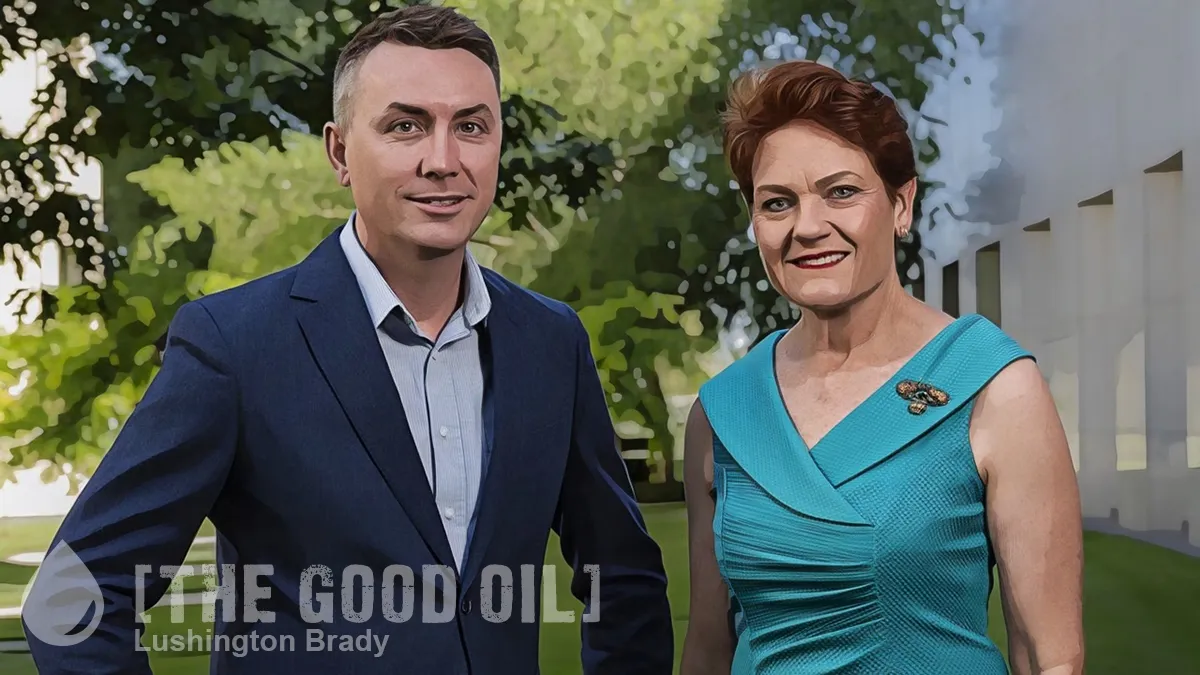Table of Contents
One of the most pernicious weapons of the censorious left will be blunted, if Australia gets a new government this March.
As people from Nigel Farage to Kiwi Lee Williams have found out, ‘de-banking’ – refusing banking services, including mortgages – has become a particularly nasty brickbat in the undeclared Social Credit regime imposed by the woke left. The coalition opposition announced their plans to put a stop to it.
News that the Coalition is preparing a policy to stop banks from refusing credit and banking facilities to perfectly legal industries on environmental, social and governance grounds is a major development.
Staring down this modern fad, commonly referred to as debanking, is one step in the fightback against the hijacking of corporate Australia by tiny minorities of noisy but influential progressive activists. Ordinary Australians can only have cheered when Peter Dutton slammed Bendigo and Adelaide Bank, and other banks, after the regional bank refused, on ESG grounds, to lend to a family-owned Tasmanian forestry business with a long history and track record.
The culprit is the Long March left’s Trojan horse, introduced through the ’90s, on the so-called ‘triple bottom line’ bullshit. As if corporations had any other obligation than to make money within the bounds of the law for their shareholders. With stunning hypocrisy, the same people who whine that ‘corporations aren’t people’ (thereby demonstrating their stunning ignorance of what the concept of corporate personhood actually means) at the same time demand that corporations act exactly like people – that is, as moral agents.
Dutton is calling time on the bullshit.
Dutton’s point is that if banks refuse to lend on political rather than credit grounds, they are effectively usurping the role of politicians. If Australia’s elected politicians determine an industry is fit to carry on business, then banks – in business only because the government has given them a banking licence – should not be second-guessing the government’s political judgments.
If banks overstep the bounds of their remit, then the answer is simple: remove their banking licence.
The quid pro quo for a government-issued banking licence is that banks should offer banking services to lawful, creditworthy businesses. Indeed, as we know from the global financial crisis of 2008 and 2009 and its aftermath.
Australian banks benefit from an explicit government guarantee of retail deposits up to $250,000 and arguably an implicit guarantee of other bank liabilities. For banks, beholden to the largesse of Australian taxpayers for their survival, to pick and choose among creditworthy businesses based on the political views of their boards and activist industry funds shows remarkable chutzpah, not to mention ingratitude.
They’re also subverting democracy and imposing an unelected oligarchy on citizens.
The real problem here is that the banks are effectively acting as the agents of unelected political activists who wish to impose their judgments on society.
These agents – proxy advisers, industry super funds and other ESG activists – can’t or don’t want to get elected but wish to act as a de facto government. They believe their moral or political judgments are better than the average punter and their elected representatives.
These elites think voters are schmucks who can’t be trusted with important decisions.
Australia is also lagging behind the free democratic world. Americans have woken in the last days of January to find they are breathing freer air. You almost have to feel sorry for the Long March left: they spent over half a century quietly, steadily white-anting nearly every institution of the West, only to find their ivory towers being toppled by the will of the people.
While the Trump revolution is poised to unleash a new American century, Australia is still suffocating under the dead hand of wokeism.
If 2025 is not the year when Australian companies come to their senses, put that down to a new class of rent-seekers on company boards and in management.
These troughers are the foot soldiers of the Long March. They’ve spent their entire lives in a series of leftist re-education camps, to emerge as dutifully robotic cadres. Now, their very livelihoods depend on parroting the party dogmas.
Those companies with the most iniquitous DEI policies – whether formal or informal – have boards full of DEI beneficiaries whose main recommendation is possession of one or more DEI characteristics.
Just as turkeys never vote for an early Christmas, let alone one at all, a woman who owes her elevation to a quota in favour of XX chromosomes will not be likely to support an end to quotas and other DEI paraphernalia. It might put their own position, and future ones, at risk if the whole DEI shebang is unravelled.
Fuelled by a mushy-minded affection for identity politics, Australian corporates have mandated a class of professional directors, frequently with mediocre to non-existent business careers, who filled, and then reinforced, DEI categories.
Case in point: Albanese-appointed Governor-General Sam Mostyn. Despite never having actually started a business of her own or risked her own money in her entire life, this DEI trougher has spent her entire life leveraging her XX chromosomes to swan from one lucrative board appointment to another.
And with what results? Corporate Australia is regarded as a rather feeble joke by voters, and by both sides of politics. For example, voters were assisted mightily to understand that the voice was a terrible idea when corporate Australia outed itself as a vociferous, and bullying, supporter of the proposal to insert a permanent race-based body into our Constitution […]
Is it any wonder corporate Australia is completely and utterly friendless. Apart, of course, from their fairweather friends in the big four accounting firms, the ASX Corporate Governance Council and the Australian Institute of Company Directors.
The return-to-sanity revolution happening in the US right now can’t get to Australia soon enough.
Good luck with dragging the squealing, kicking pigs from their luxury troughs.








